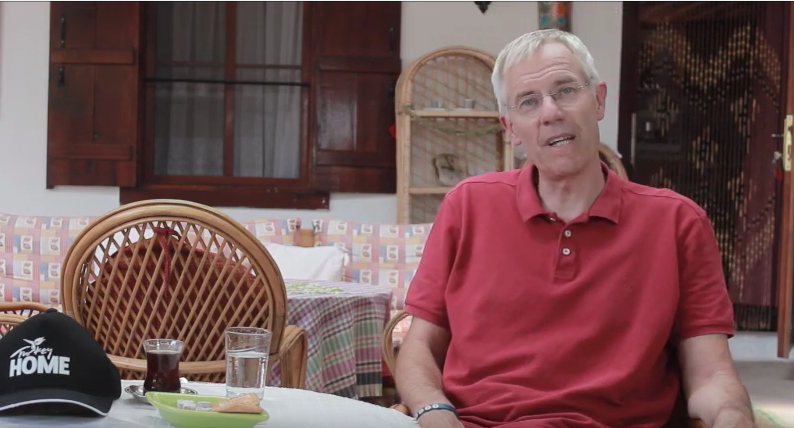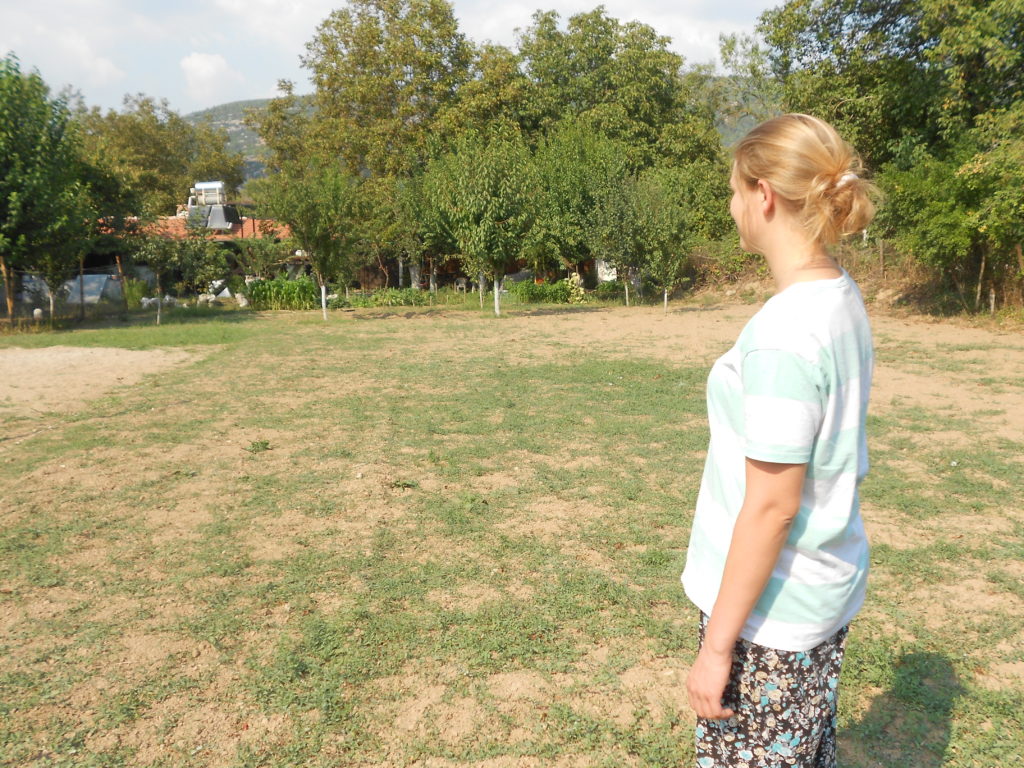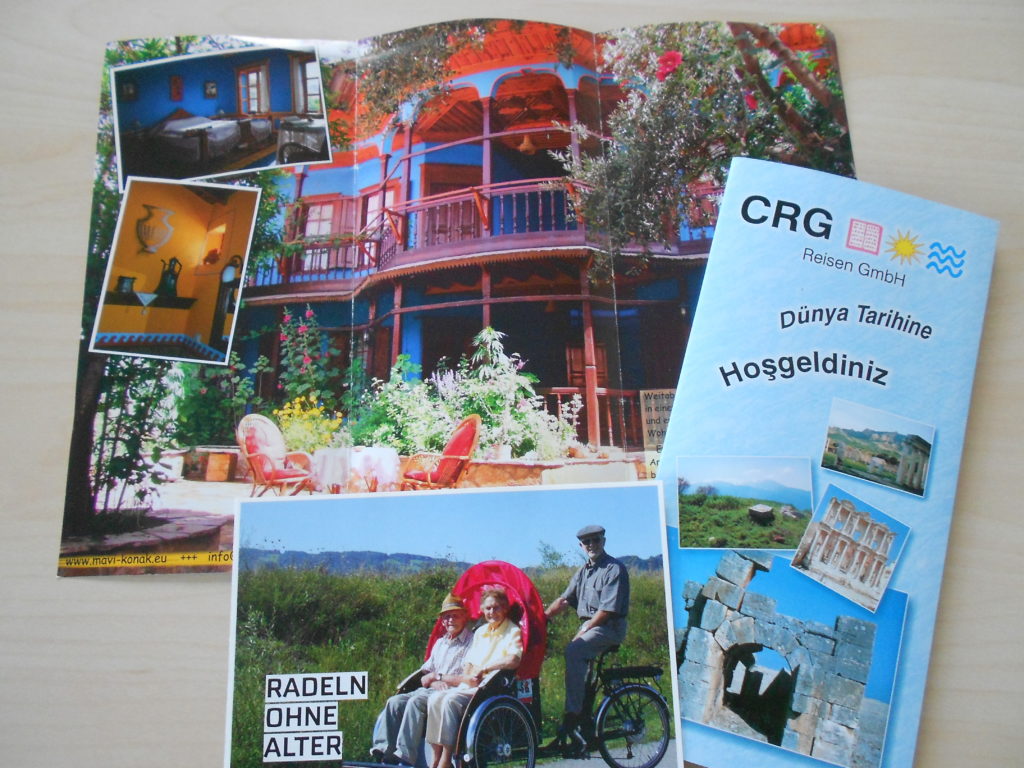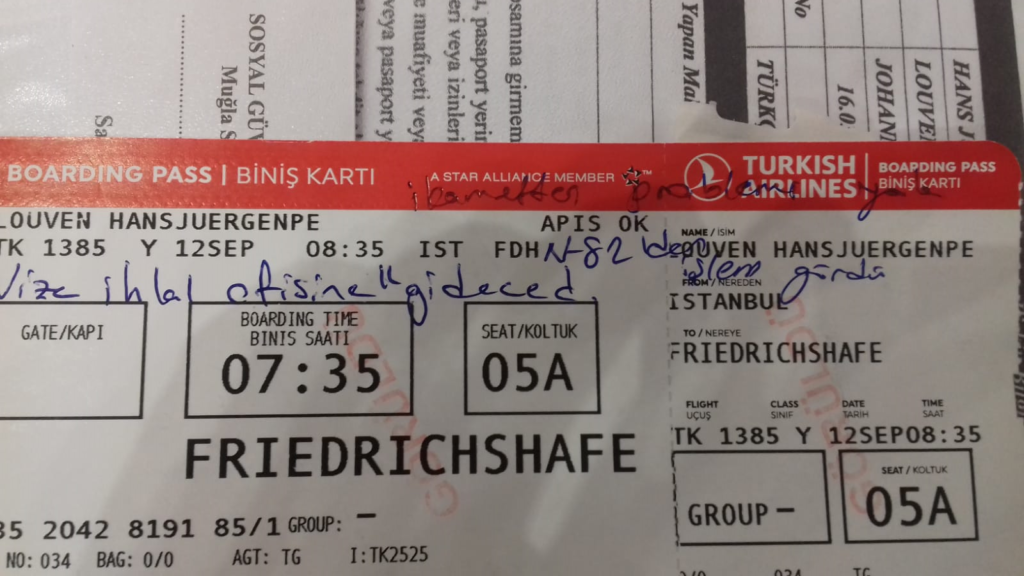
Without any warning, the Turkish government last month notified a German who’s worked for two decades in its tourism sector that his routine application to renew his residency visa had been denied. Abruptly, 58-year-old Hans-Jurgen Louven was then ordered to leave Turkey – where he owns property, and plans to stay the rest of his life – within 10 days.
The Aug. 21 notice from the Migration Bureau of the Turkish Ministry of Interior (MOI) gave the tour agent (retired since 2017), no explanation for the cancellation of his long-term visa in Mugla province. This is in Turkey’s southwest corner along the Aegean Sea.
Although 15 specific reasons for refusal listed on the form were left blank, only one item was checked: “Other Reasons.” But there was no further detail.
“I need to stand up against this,” Hans-Jurgen Louven told World Watch Monitor last week, 24 hours before he reluctantly boarded a Sept. 12 flight out of Turkey. “Why do they refuse to give me any reason?”
As he left for Bodrum airport, and onto Istanbul, he told WWM he was particularly distressed that he had to leave behind his university-age daughter Hanna. She is alone in their Mugla home without her father or Austrian mother Renate (who had flown to Austria some weeks earlier to be with her elderly mother who’d recently been in hospital).

“How can the authorities demand that I just abandon my daughter to live by herself. What Turkish father would do that?” Mr Louven demanded. “She’s just starting her fourth and final year studying at Mugla’s Sitki Kocman University. And now without me here, she’ll probably have to take extra time to go find and feed the chickens at our small farm, look after the vegetable garden and fruit trees there – all because we’re not here.”
‘Culture and faith’ tourism
Some 21 years ago, Louven had moved with his wife and infant daughter to settle in Mugla, in the heart of the country’s popular holiday resort region. He was quickly convinced of the area’s tourism potential for Western Europeans and others, which includes its heritage of multiple historic Christian sites, such as Ephesus, Laodicea (mentioned in Revelation, the last book of the Bible) and the world-famous Pamukkale (named as Hieropolis in the Bible).
So he began working as a representative of the CRG Reisen Tourism Agency, inviting and hosting international tours to the region. By 1999 he had begun restoring historic Mugla houses to provide authentic heritage accommodation for his guests, and in 2004, he formed Agape Tourism Ltd. Sti. in cooperation with Turkish and German business partners.
“But before I was going to invest in business here,” he told World Watch Monitor, he first asked local officials if it would cause any problems for him as a Christian to focus on promoting ‘Culture and Faith Tourism’ trips in predominantly Muslim Turkey.

Framed letters displayed in his home office confirm the official response and ongoing approval Louven received from both the provincial governor and mayor of Mugla City for his faith tourism activities. The documents specified in writing that his tourism activities were welcomed, commending him for the “valuable contributions” of his activities to promote dialogue between different cultures and religious faiths on behalf of humanity, with assurance of full protection for his tour activities under the secularist principles of the Turkish Constitution.
So the abrupt cancellation of his residency visa has come as a shock.
Social media appeals
With a 10-day deadline staring him in the face, Louven promptly started an online signature campaign in Turkish on the Change.org website. Headlining it “Let Hans Stay,” he posted a photograph together with his wife and daughter on their small farm on the edge of Mugla, describing his business and humanitarian activities along with positive relationships they had experienced over the years with local officials, neighbors and entire community.
“I want to think that this situation is very clearly a violation of human rights and comes from an incorrect understanding,” he wrote, noting, “The only reason I can think of for [forcing me to leave] is that we are people of faith, and at times we have shared our faith with the local people.”
More than 1,330 signatures had been posted on the site protesting his pending ouster before he had to leave.
The distraught German also sent a personal letter to the General Director of the Migration Bureau in Ankara, Abdullah Ayaz (who had previously visited his home) to explain his visa cancellation. He also sent letters by direct courier to Turkish President Recep Tayyip Erdogan and Interior Minister Suleyman Soylu, asking if indeed his role in faith tourism was the undisclosed reason for his deportation order.
Within a few days, Louven also released a 3-minute video in Turkish (also in English here) depicting his family and tourism activities over the past 21 years. “What I am to do now?” he concludes, questioning why he’s being forced to leave the country where he had expected to live the rest of his life, and where he’s already prepared his tombstone.
(Turkish original: https://youtu.be/313eb5Yw69Y
German soundtrack: https://youtu.be/cMHoww-n2Pg)
Lawyer: no legal basis
On the legal side, Louven hired Mugla lawyer Cuneyt Erkmen Ozbayir to file a formal petition before the Mugla administrative courts, in an attempt to delay the immediate implementation of his deportation and obtain a court ruling on his case.
Objecting to the MOI‘s deportation order, which the lawyer described as “difficult to understand,” Ozbayir stated in the petition, “The denial of my client’s extension of his residence visa is lacking the required, absolutely concrete legal basis” for such a decision. The lawyer went on, “Not extending his visa and deporting him divides his family, leaving his wife and daughter without protection.”
“This violates the humanitarian values of our Turkish culture,” Ozbayir told World Watch Monitor. “Anyway, the court has not rejected his appeal. The time was too short before his deadline, so his case can continue.”
Under legal statutes protecting the rights of foreigners in Turkey, Louven can apply again to the court within the next 15 days, submitting his reasons for substantiating the court’s re-evaluation of his case. Likewise, the Migration Bureau can also file new details to the court within the same 15 days, to reveal its legal basis for deporting him.
But since Louven was kept waiting for more than a week after the deadline for the Mugla court to respond officially to his lawyer’s petition, the German ended up over-staying his deportation deadline. As a result, local police stopped by his home twice to question his daughter and neighbors, assumedly to detain and deport him, although they did not find him at home.
When it became clear that he had no other legal recourse, Louven asked his lawyer to inform the court that he would accordingly comply with the deportation order, flying to Austria on Sept. 12 on a round-trip ticket he had already purchased a month before learning he was to be expelled. (He was to join his wife, with his mother-in-law).
Louven confirmed that officials in the German and Austrian diplomatic missions in Turkey have closely monitored his expulsion order, interacting with Turkish counterparts ever since he informed them a month ago.
The day after he left, one well-known business figure in Mugla City, a long-time friend of the Louven family, told World Watch Monitor, “This problem for Hans-Jurgen has definitely been caused by some fanatic or extremist slander. This decision is not from our courts–it has come from the Interior Ministry. So I think it will take time, but it should be resolved by the courts within a few months.”
“I do have hope Dad can come back home,” daughter Hanna told World Watch Monitor after he left. “But it will probably take some time. Our neighbors couldn’t understand why he had to leave. They said he is the most honest and beautiful person they know. They were really ashamed of their country doing this injustice to us.”
“Our lawyer has hope,” she said, “and he will go to the highest court if necessary…maybe even to the European Court of Human Rights.”
During immigration procedures during Louven’s departure from Istanbul airport in the early hours of Sept. 12, officials told him that he would be allowed to return to Turkey. But before he headed to the gate, they scribbled the code “N-82” on his boarding pass.

Systematic purge of foreign Christians?
During the past eight months, at least 23 other foreign Christians with valid Turkish residence visas have been given the same N-82 code at various airports when leaving or trying to re-enter Turkey – including two other Germans.
The targeted individuals include citizens of Brazil, Canada, the United States, New Zealand, the United Kingdom, Iran, Germany, South Korea and Finland. In most cases only the husband was banned, although three married couples were also served notice without warning, while abroad together.
None have then been allowed to return to Turkey to be reunited with their families, ultimately forcing the men’s wives and children to settle all the financial affairs, and then pack up and leave before their own visas expire.
Most of those affected had been working for many years as volunteer church leaders among the Protestant churches, which – like Turkey’s other non-Muslim religious minorities – are prohibited by law from opening seminaries or spiritual education programs to train their own leaders and congregations. The majority lived in the major cities of Ankara, Istanbul, Izmir and Antalya, with known involvement in open, legal Christian ministry activities.
Most of the banned Christians have since consulted directly with their embassies in Turkey or diplomatic missions abroad, and several have managed to open legal inquiries about their situation through Turkish lawyers.
Turkish immigration officials, as well as representatives in Turkish embassies and consulates in the ousted expatriates’ home country, have declined to explain the meaning of the Interior Ministry’s N-82 code. No clear reason has been given, apart from unsubstantiated allegations that they posed a threat to the country’s public order and/or national security.